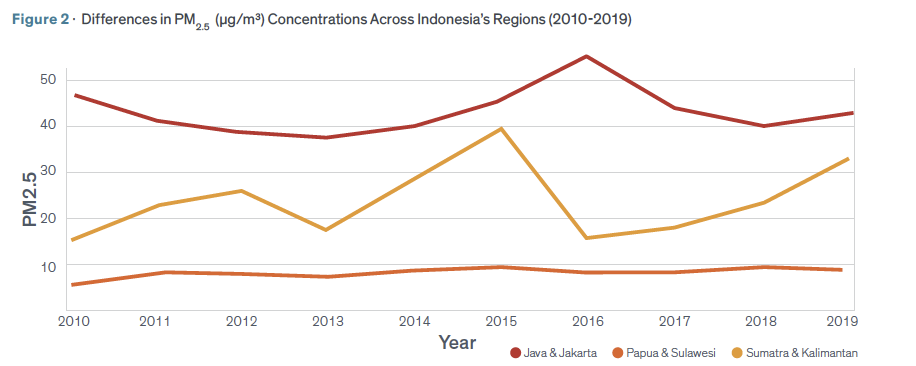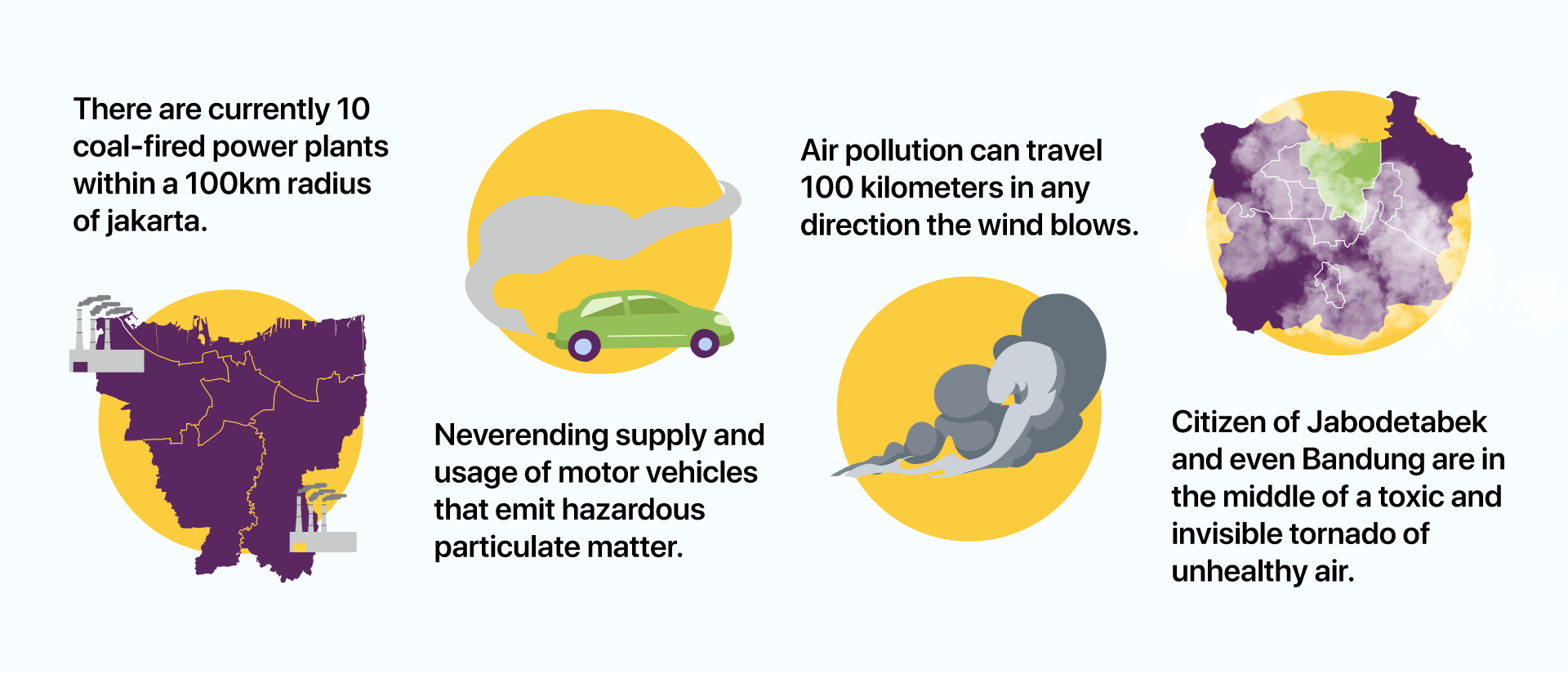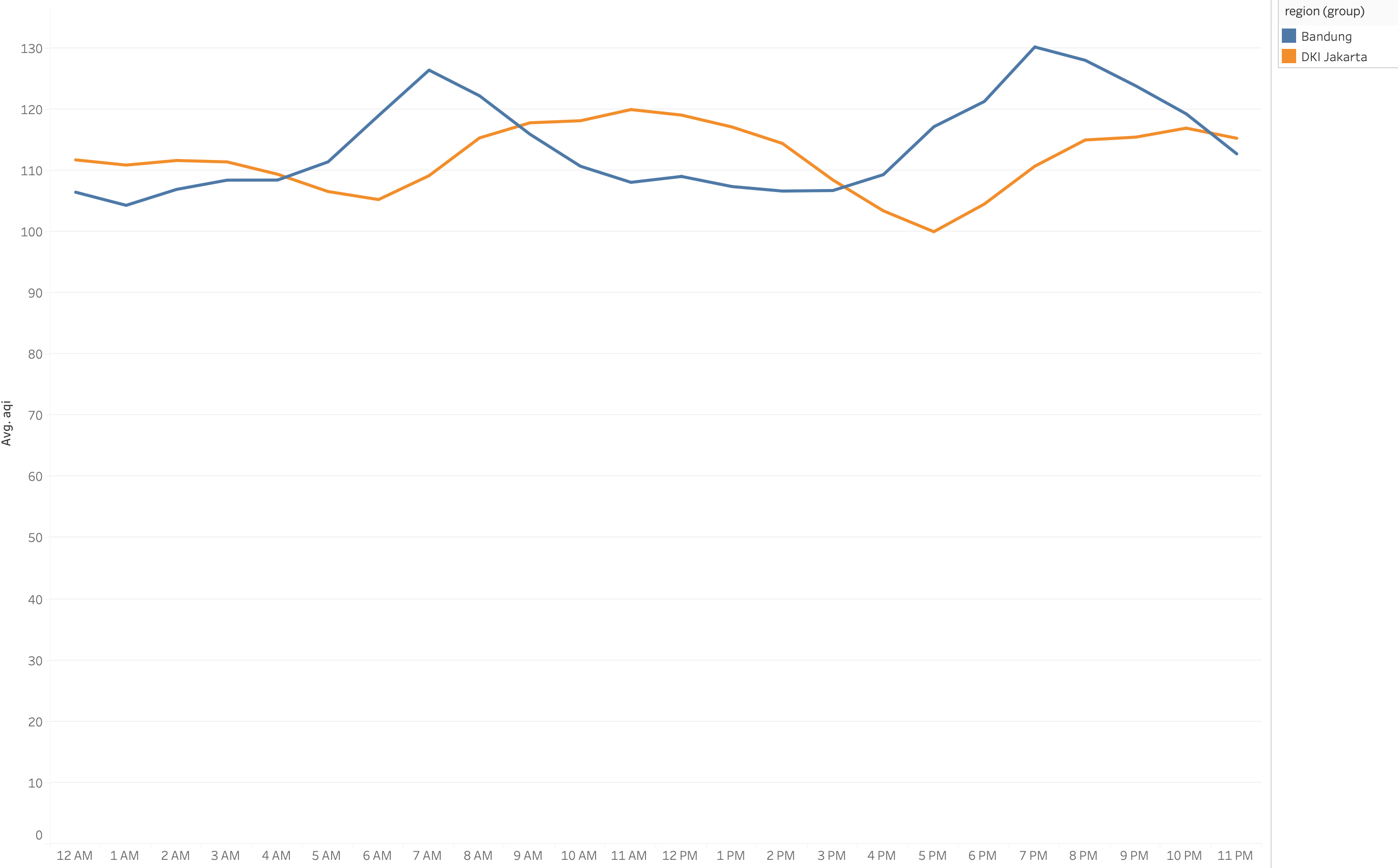How can air pollution take away our life expectancy?
Our partners at the Air Quality Life Index of the Energy Policy Institute at the University of Chicago recently released a report that elaborates more on how air pollution can impact our life expectancy. In Jakarta, the average citizen will lose 5.5 years of life expectancy if current pollution levels remain the same. Even worse, citizens of Bandung and Bogor will lose nearly 7 years of life expectancy since pollution levels in both cities are in fact worse than in Jakarta.
Let’s break this overwhelming-slap-of-reality down into two parts:
1. How did air pollution get so bad that we have come to a point that the air we breathe is literally taking years off our lives?

(Motor vehicles are densely packed in Java compared to other islands in Indonesia, coupled with the increase in coal-fired power plants on the island, resulting in a higher rate of PM2.5. Source: AQLI, 2021)
Major causes of particulate pollution include emissions from vehicles and coal-fired power plants. Since 2010, there have been sharp increases in electricity generation from coal-fired power plants, as well as gasoline and diesel consumption, all of which have contributed to air pollution. At the same time, motor vehicles in Jakarta account for approximately 31.5% of the city’s particulate pollution. If we put all of this together:

Let’s not forget the added boost from the climate crisis that is making our planet hotter, thus triggering more wildfires and, well, you know what they say about fire and smoke, right?
(As seen from the graph above, Bandung and Jakarta’s average air quality is similar on an hourly basis. Source: Nafas, 2021)
2. So, what can we do to win our years back
- Individually, we always need to be aware of the air quality around us. Know when to open or close our windows and when to filter the air around us so we can protect our health.
- Communally, lobby for systemic change through public campaigns, petitions, and public lawsuits like the one by Koalisi Ibukota that recently won their case against the government.
- Systemically, the government must formulate policy changes to bring back cleaner air. Enact stricter regulation on power plants, convert public motor vehicles to electric ones, and speed up the transition towards renewable energy.
